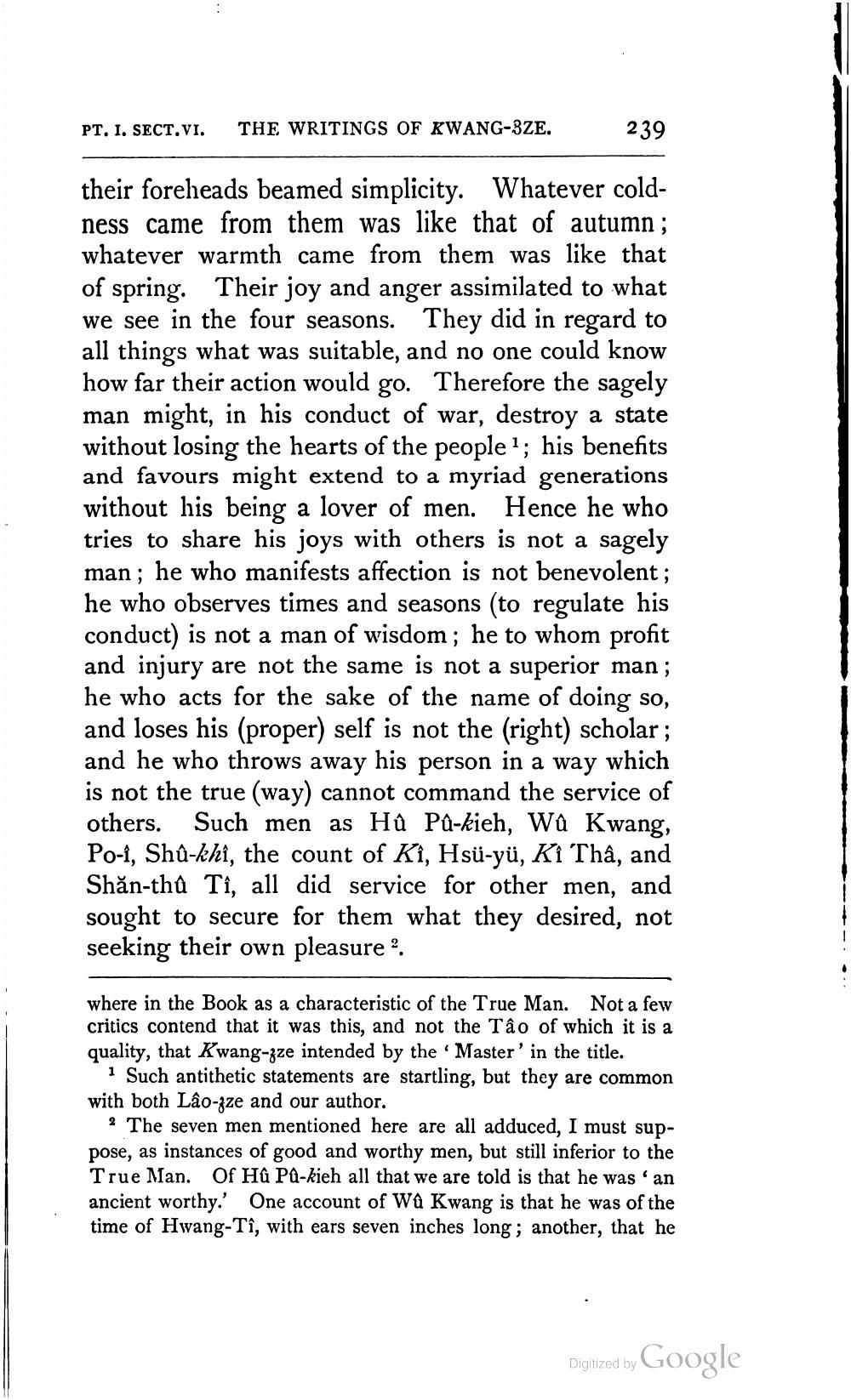________________
PT. I. SECT. VI. THE WRITINGS OF KWANG-3ZE.
239
their foreheads beamed simplicity. Whatever coldness came from them was like that of autumn; whatever warmth came from them was like that of spring. Their joy and anger assimilated to what we see in the four seasons. They did in regard to all things what was suitable, and no one could know how far their action would go. Therefore the sagely man might, in his conduct of war, destroy a state without losing the hearts of the people 1; his benefits and favours might extend to a myriad generations without his being a lover of men. Hence he who tries to share his joys with others is not a sagely man; he who manifests affection is not benevolent; he who observes times and seasons (to regulate his conduct) is not a man of wisdom; he to whom profit and injury are not the same is not a superior man; he who acts for the sake of the name of doing so, and loses his (proper) self is not the (right) scholar; and he who throws away his person in a way which is not the true (way) cannot command the service of others. Such men as Hû Pû-kieh, Wû Kwang, Po-i, Shû-khi, the count of Ki, Hsü-yü, Kî Thâ, and Shăn-thu Ti, all did service for other men, and sought to secure for them what they desired, not seeking their own pleasure 2.
where in the Book as a characteristic of the True Man. Not a few critics contend that it was this, and not the Tâo of which it is a quality, that Kwang-zze intended by the 'Master' in the title.
1 Such antithetic statements are startling, but they are common with both Lâo-zze and our author.
2 The seven men mentioned here are all adduced, I must suppose, as instances of good and worthy men, but still inferior to the True Man. Of Hû Pû-kieh all that we are told is that he was an ancient worthy.' One account of Wû Kwang is that he was of the time of Hwang-Tî, with ears seven inches long; another, that he
Digitized by Google
1
•




